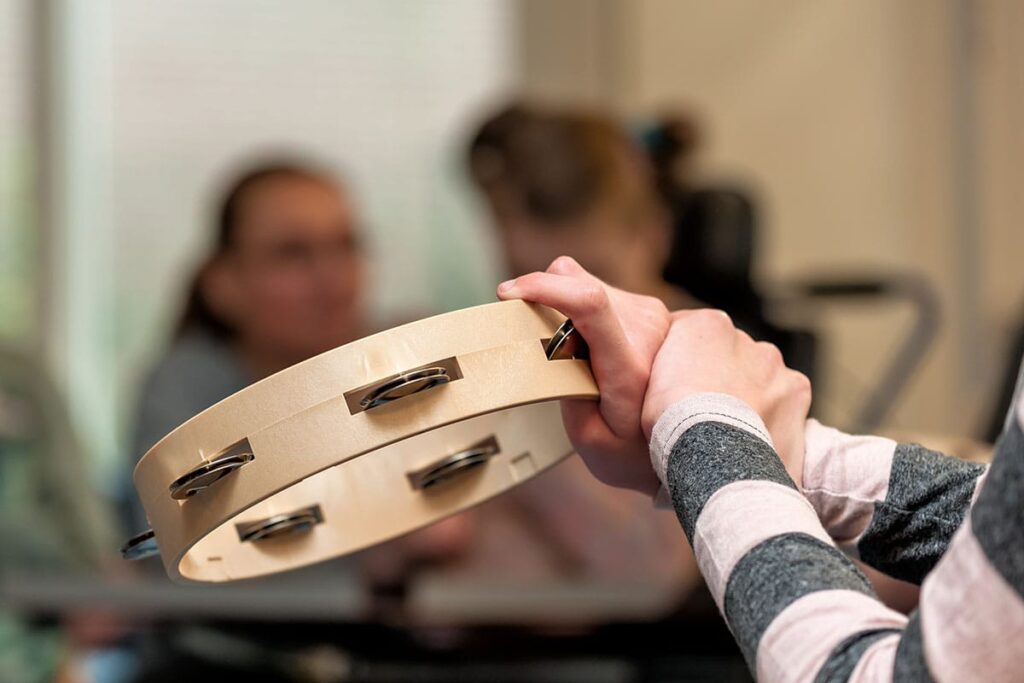Healing from addiction is not a one-size-fits-all experience. Every individual responds differently to different types of therapeutic approaches. That’s why we incorporate a variety of therapies into our treatment programs at Woodland Recovery Center. Our music therapy program offers a unique opportunity that can help some people overcome addiction. For more information about music therapy for addiction treatment and other holistic programs, call Woodland Recovery Center at 662.222.2989.
What Is Music Therapy?
Music therapy for addiction recovery is more than simply listening to music. Music therapy is a clinically recognized, evidence-based treatment that can be effective for a variety of disorders, including substance and alcohol use disorders. It helps people lower stress levels, improve coping skills, and improve self-esteem.
Other benefits of music therapy for addiction treatment include:
- Improved memory
- Increased joy
- Pain management
- Better motivation
- Improved self-regulation
- Self-reflection
- Lowered blood pressure
- Enhanced social skills
Music therapists are qualified mental health professionals who work with a variety of people, including military veterans, people with Alzheimer’s disease, trauma victims, and those with mental health disorders, including substance use disorders.
What to Expect from Music Therapy for Addiction Recovery
One of the first questions many people ask after “What is music therapy?” is, “Do I have to play an instrument to benefit from music therapy?” No, you do not have to have musical talent to participate in or benefit from music therapy. You only have to enjoy music.
Music therapy may include composing, playing, or singing, but it is often a receptive experience. Patients actively listen to music and discuss the feelings or images the music evokes.
Music may be used as a tool to aid relaxation. It could be combined with art or yoga therapy. Some therapists might use music therapy as a way to help patients access emotions they have closed off while using drugs or alcohol.
Sessions can take various forms depending on the patient’s needs. Your therapist may start with an assessment to gather basic information that will help them apply music therapy most effectively for your needs. You may be asked to discuss your wellness goals, music preferences, or any previous musical experience. Music therapy sessions can take place privately or in a group setting.
Music therapy is enjoyable, but it’s important to remember that it is not simply for your enjoyment. Like all forms of addiction treatment, music therapy is intended to help patients heal from past traumas and build a solid foundation for long-term wellness.
Music Therapy Enhances Other Treatments
Patients who participate in music therapy tend to become more engaged in their treatment program overall. It is typical to think of addiction treatment as difficult, emotionally draining, and physically challenging—and at times, it can be.
Music therapy for addiction recovery brings a joyful element to treatment that many of our patients look forward to. It challenges the belief that recovery is all about suffering and deprivation.
For many, music therapy reconnects them with life’s purest pleasures—good music, laughing with friends, and feeling at peace with themselves. These are the kinds of pleasures that are often forgotten when addiction takes over. When patients reconnect with these simple joys, they are often naturally more open to treatment and have a more positive outlook on life.
Music Therapy for Addiction Treatment at Woodland Recovery Center
Addiction recovery is a personal experience. It doesn’t have to look or be the same for everyone to be effective. Music therapy is only one of the unique, whole-person therapy options we offer. If you are ready to recover from substance or alcohol addiction, call us today at 662.222.2989 for more information about our treatment programs.



